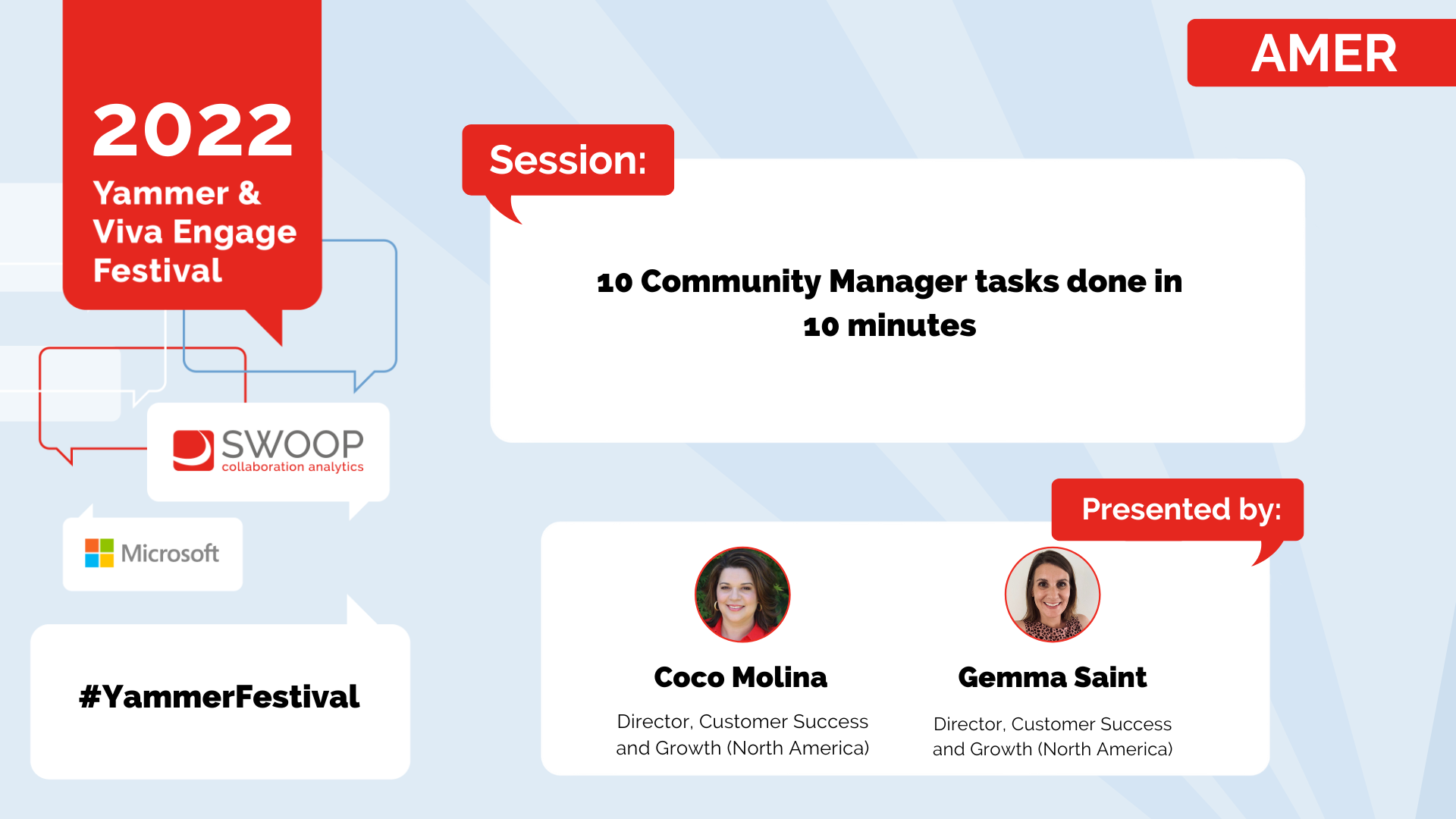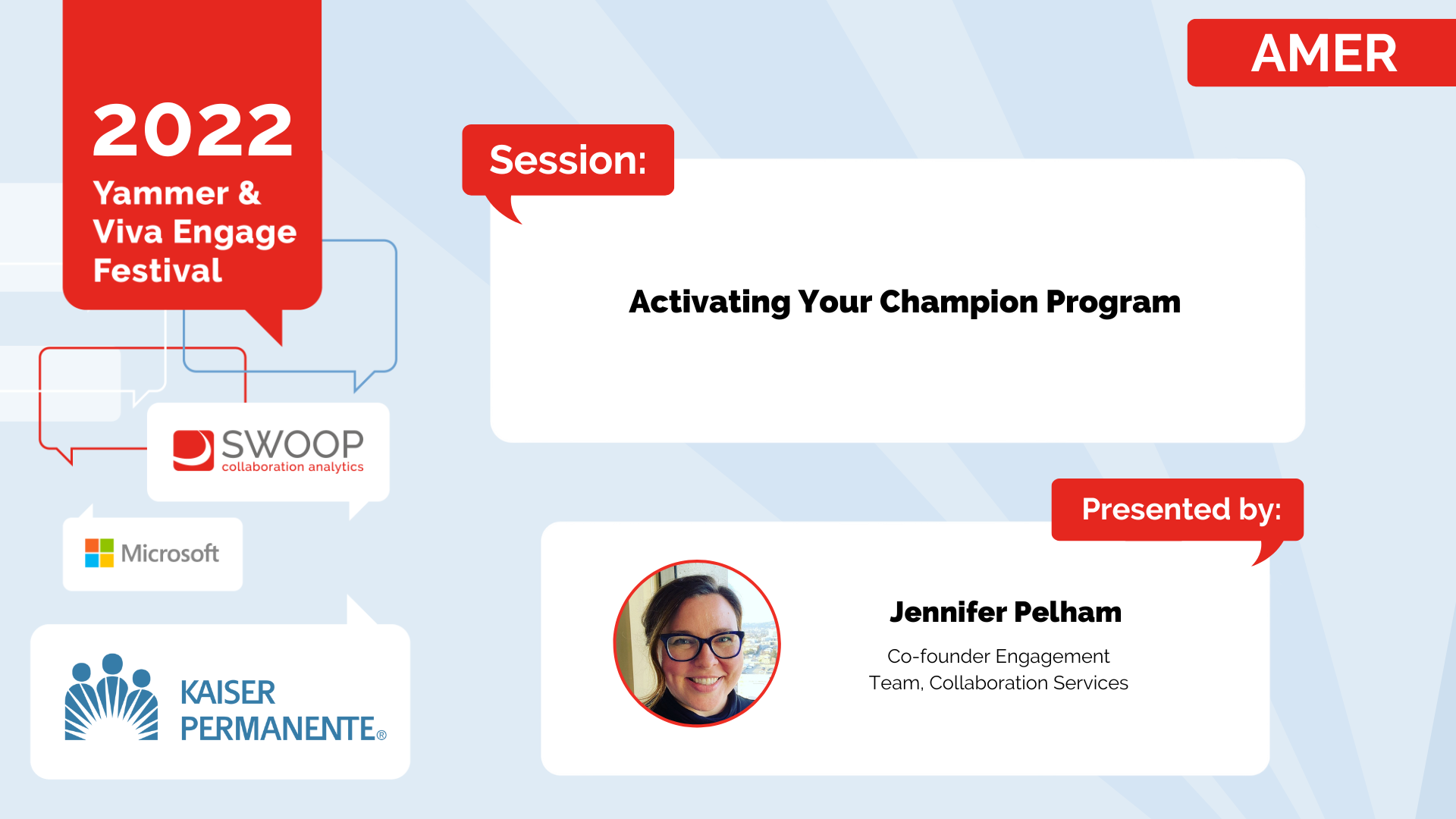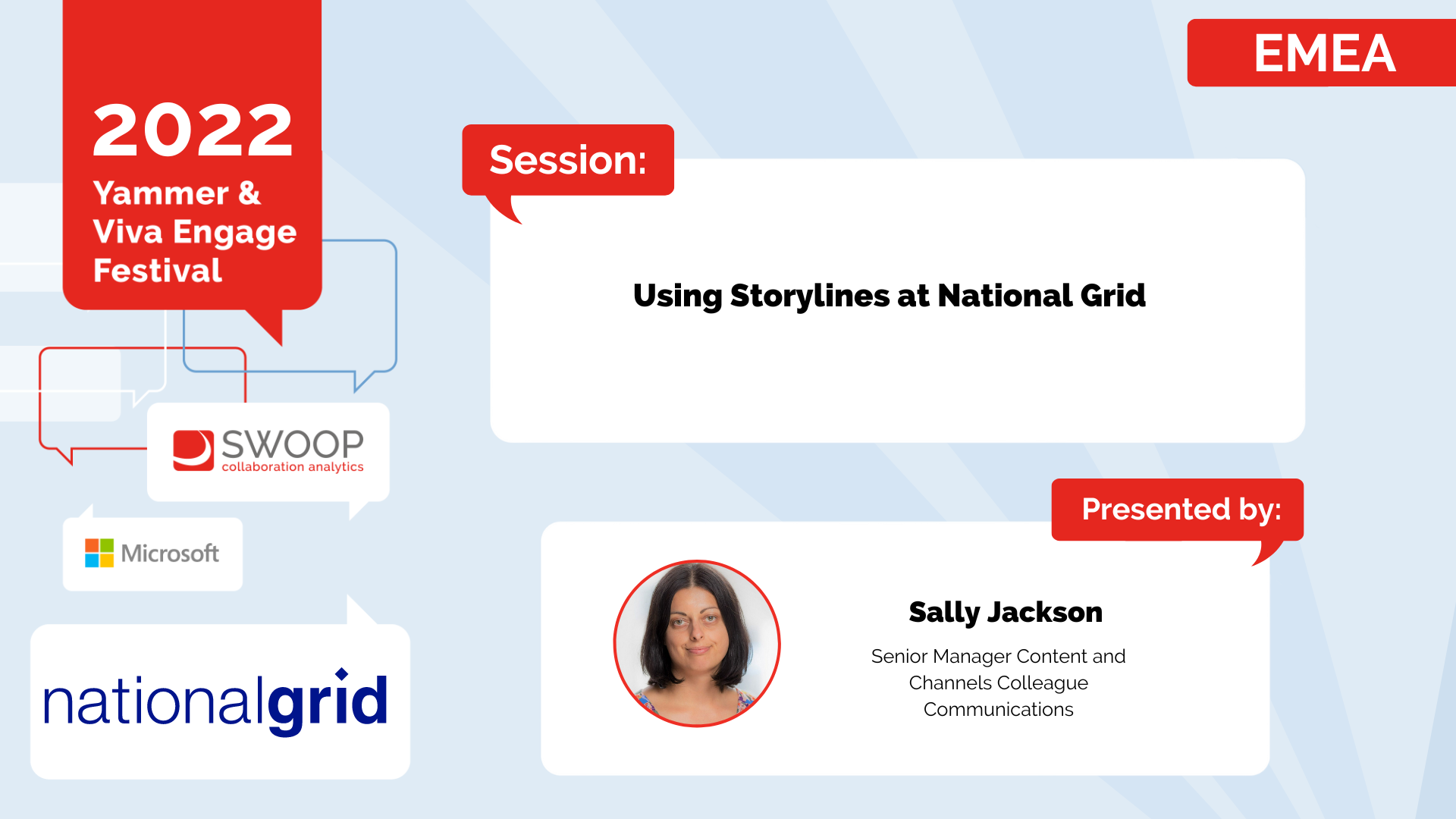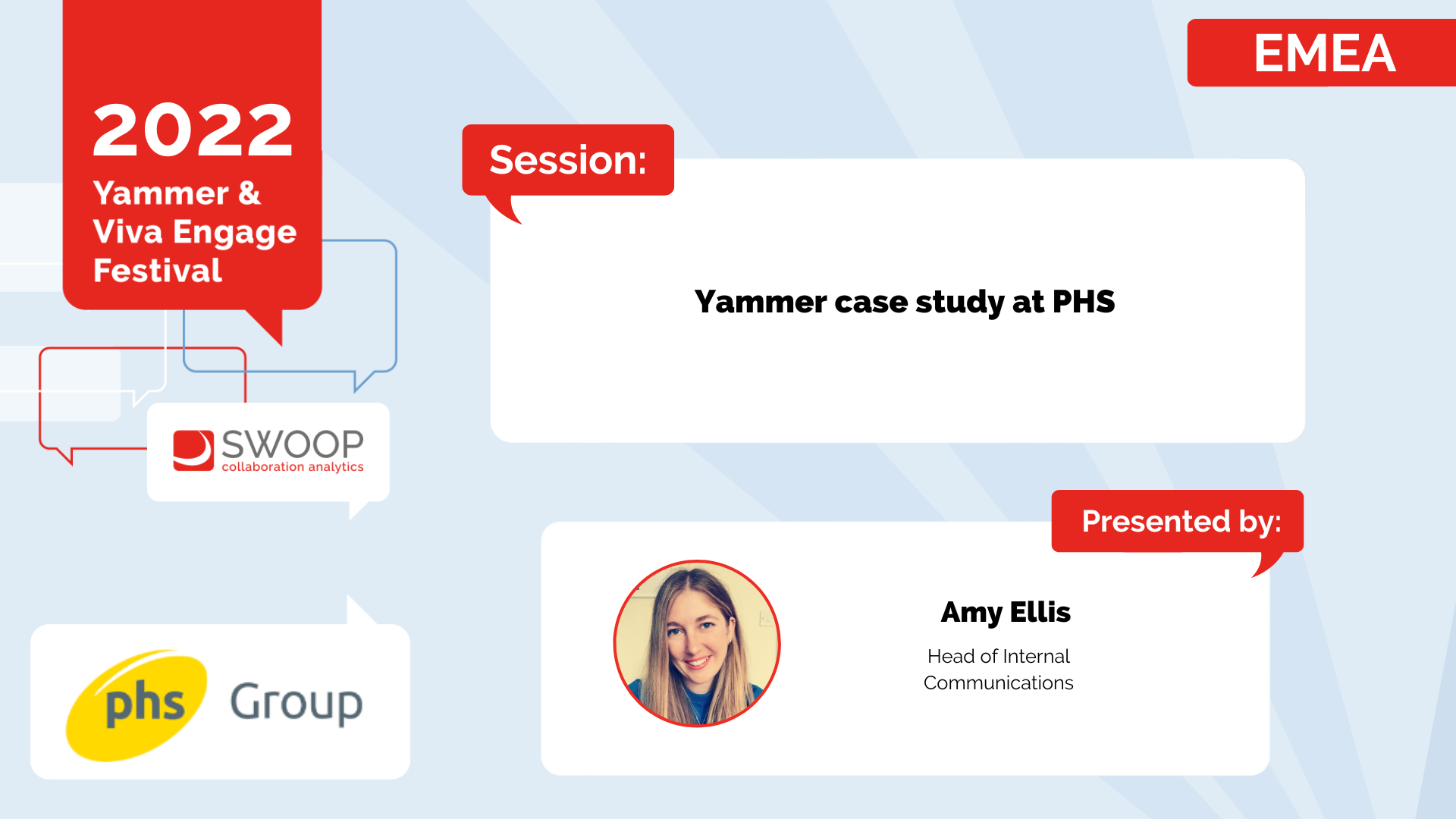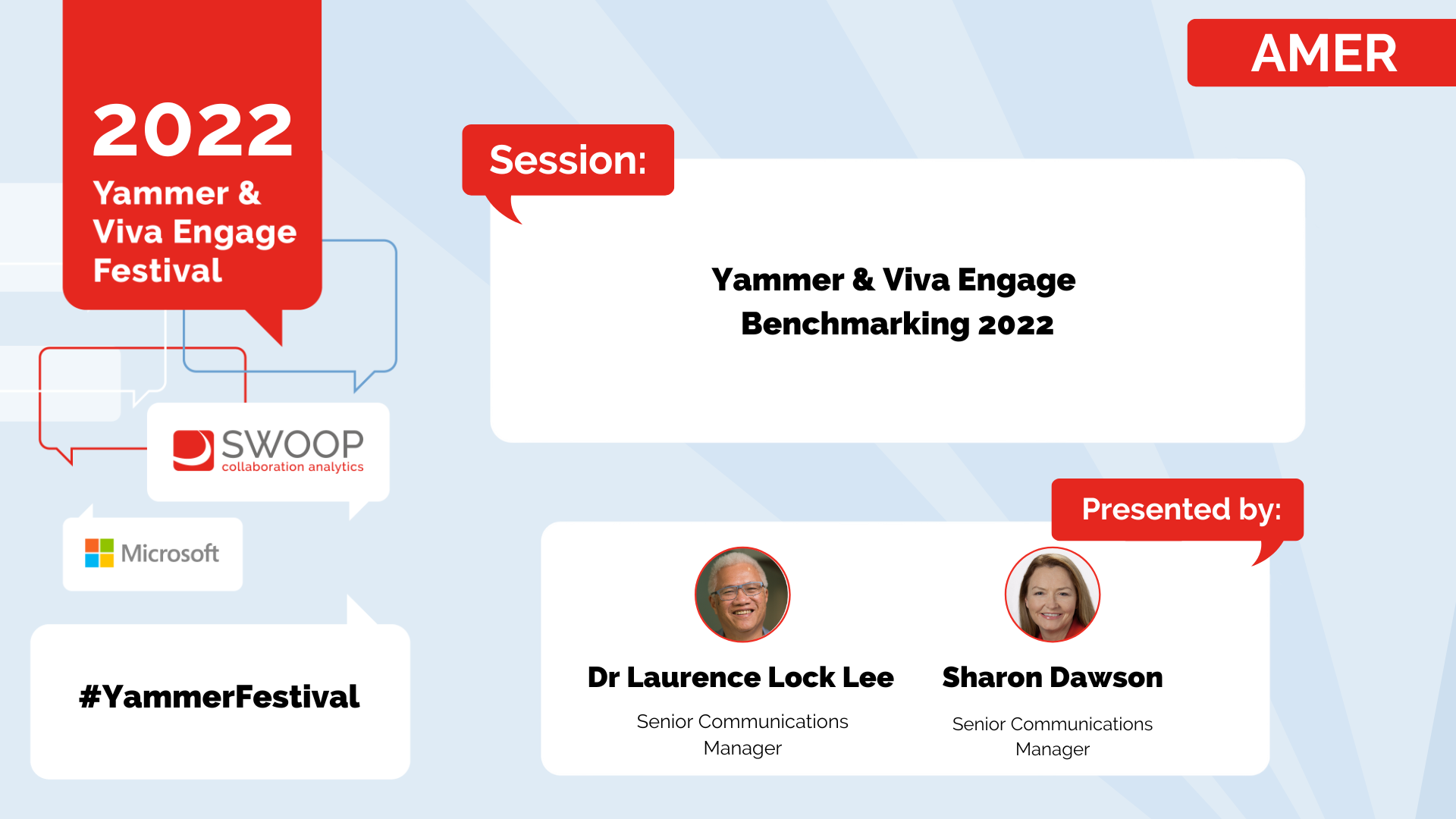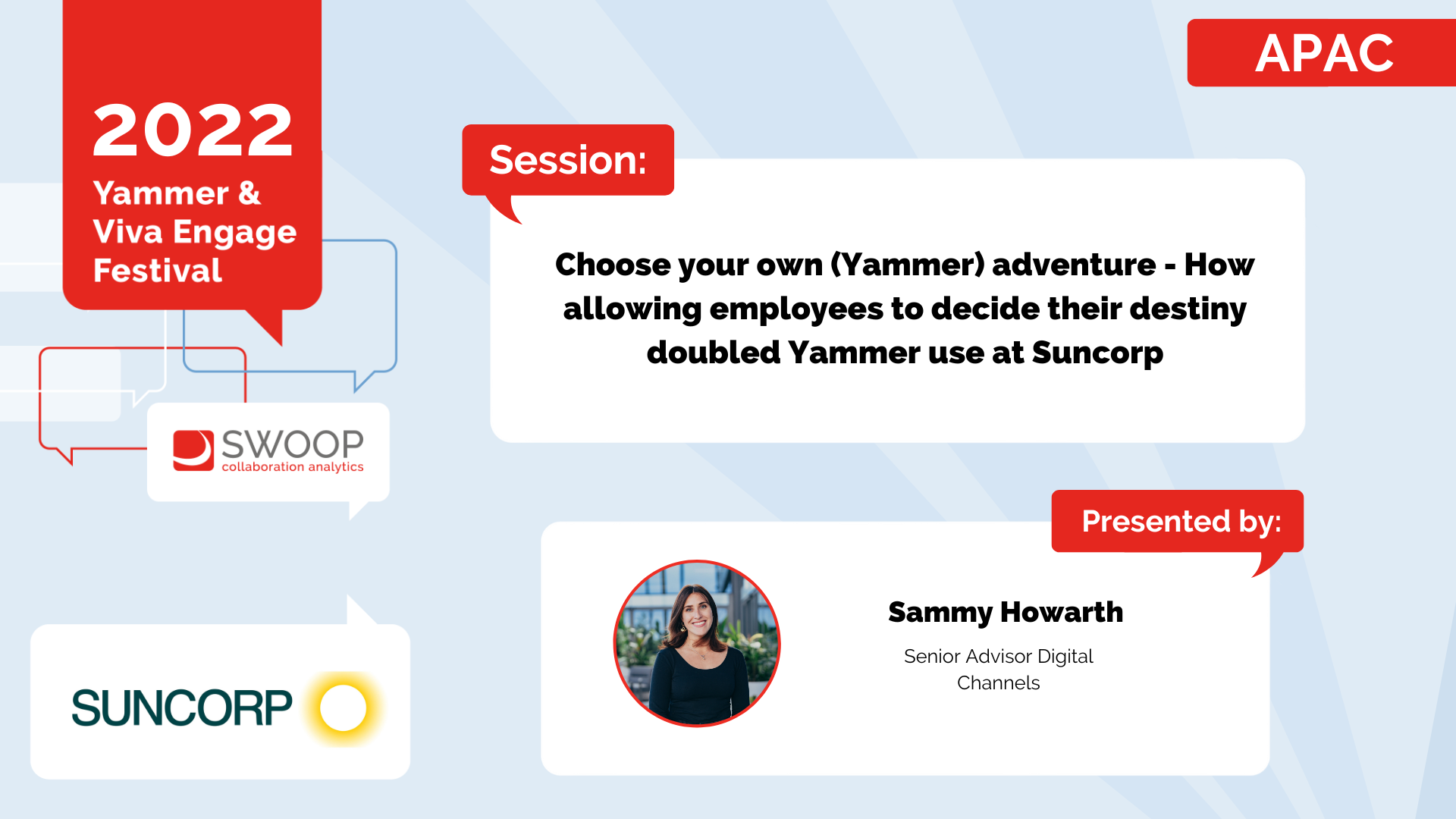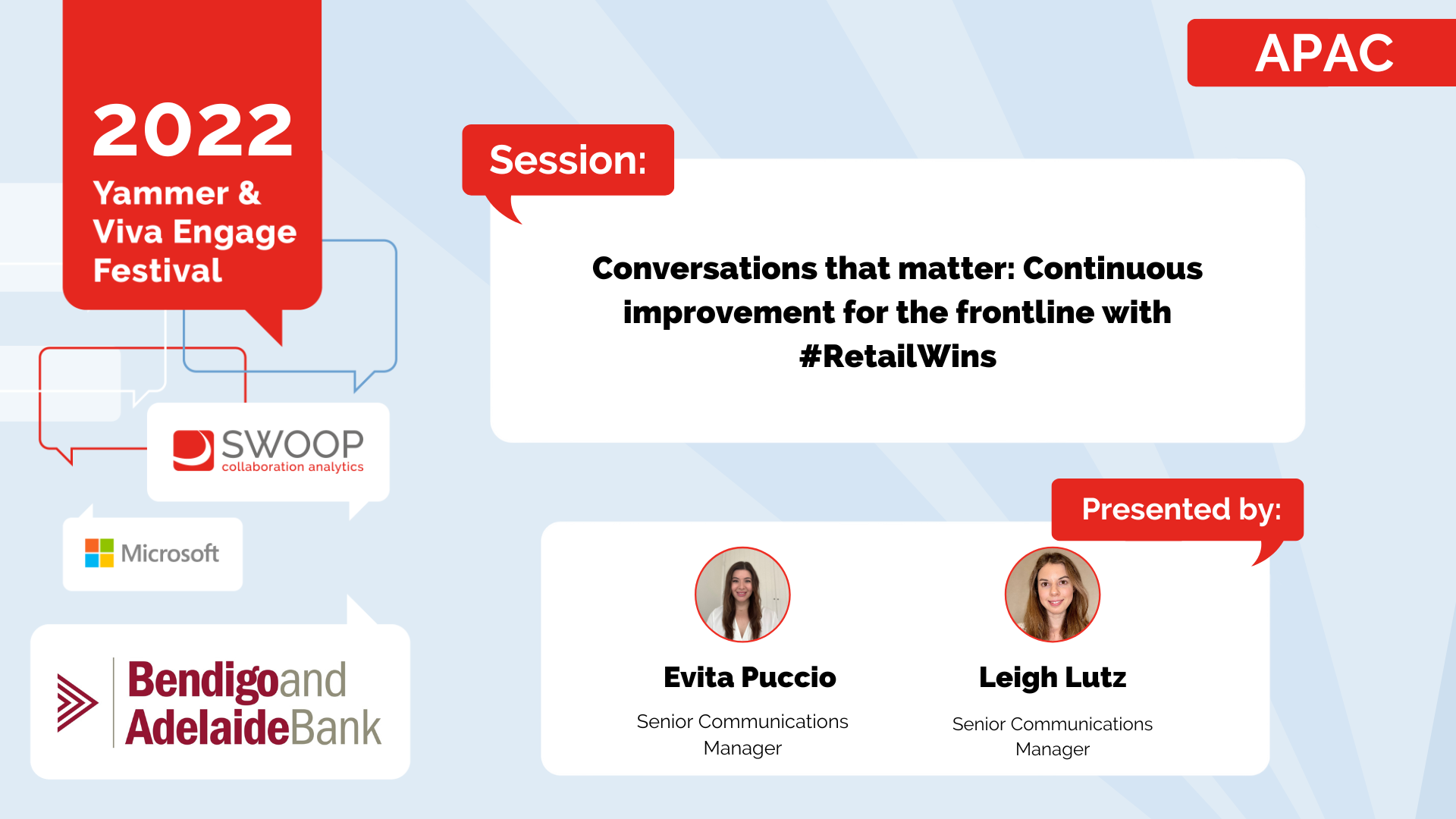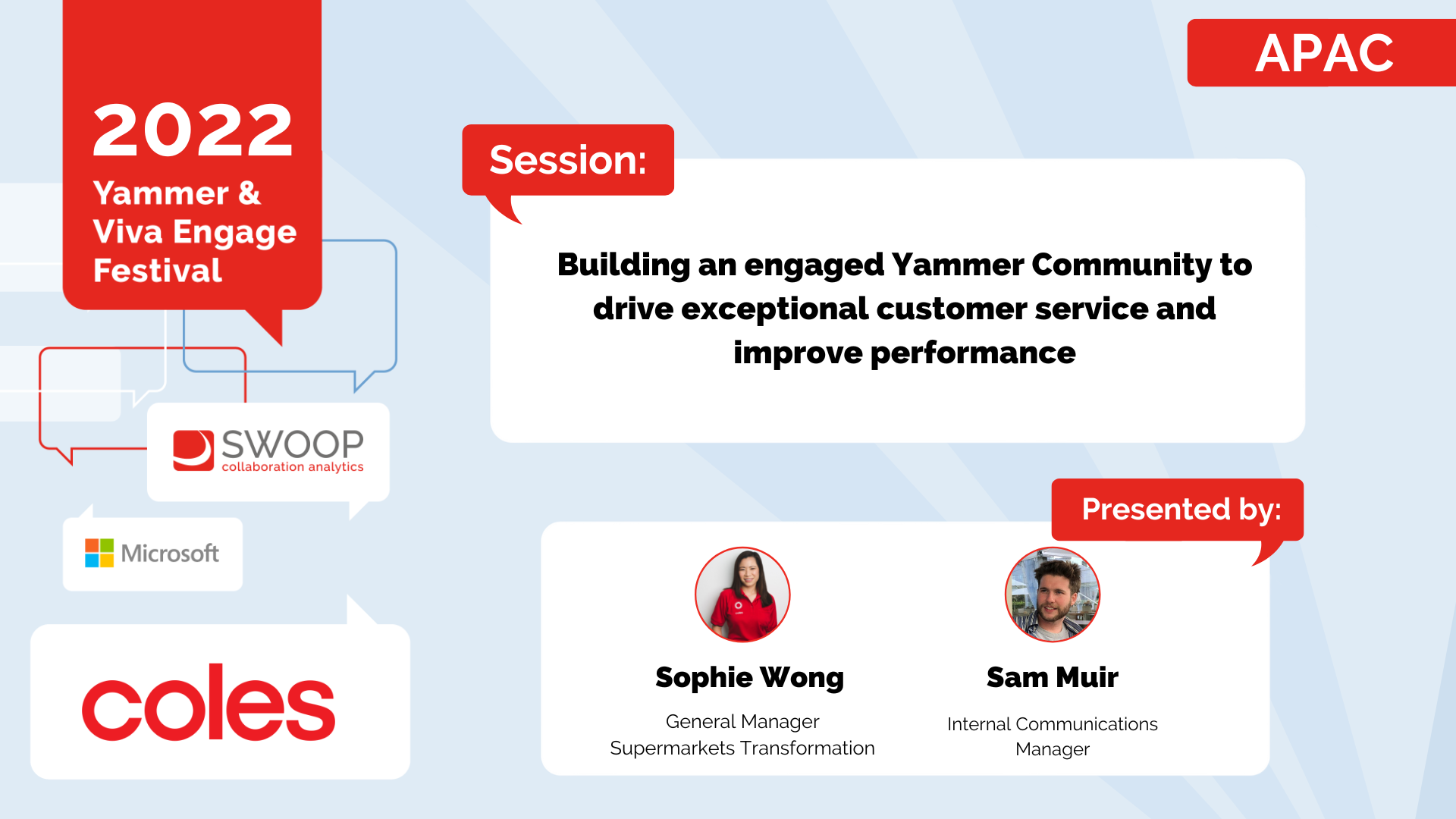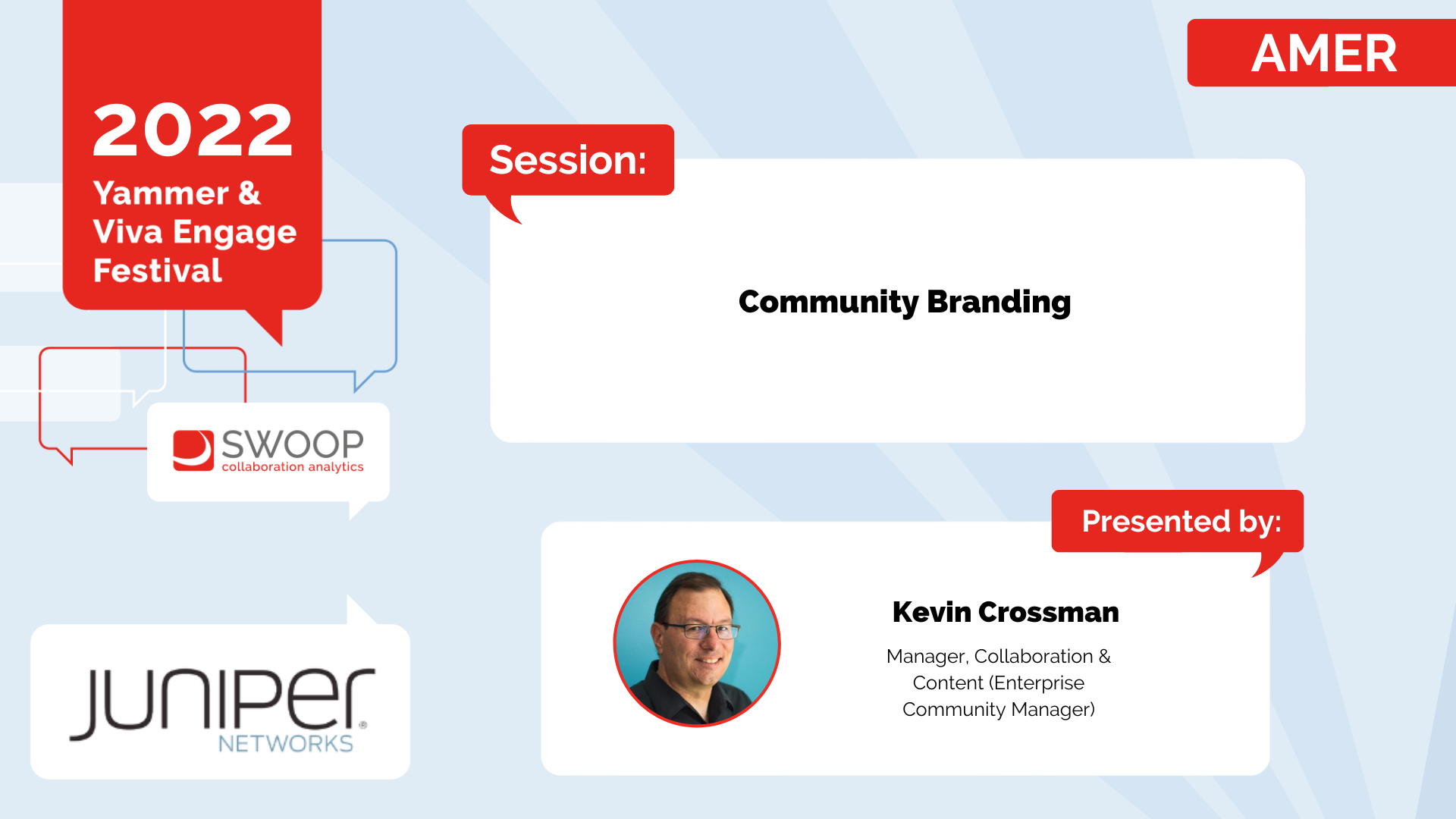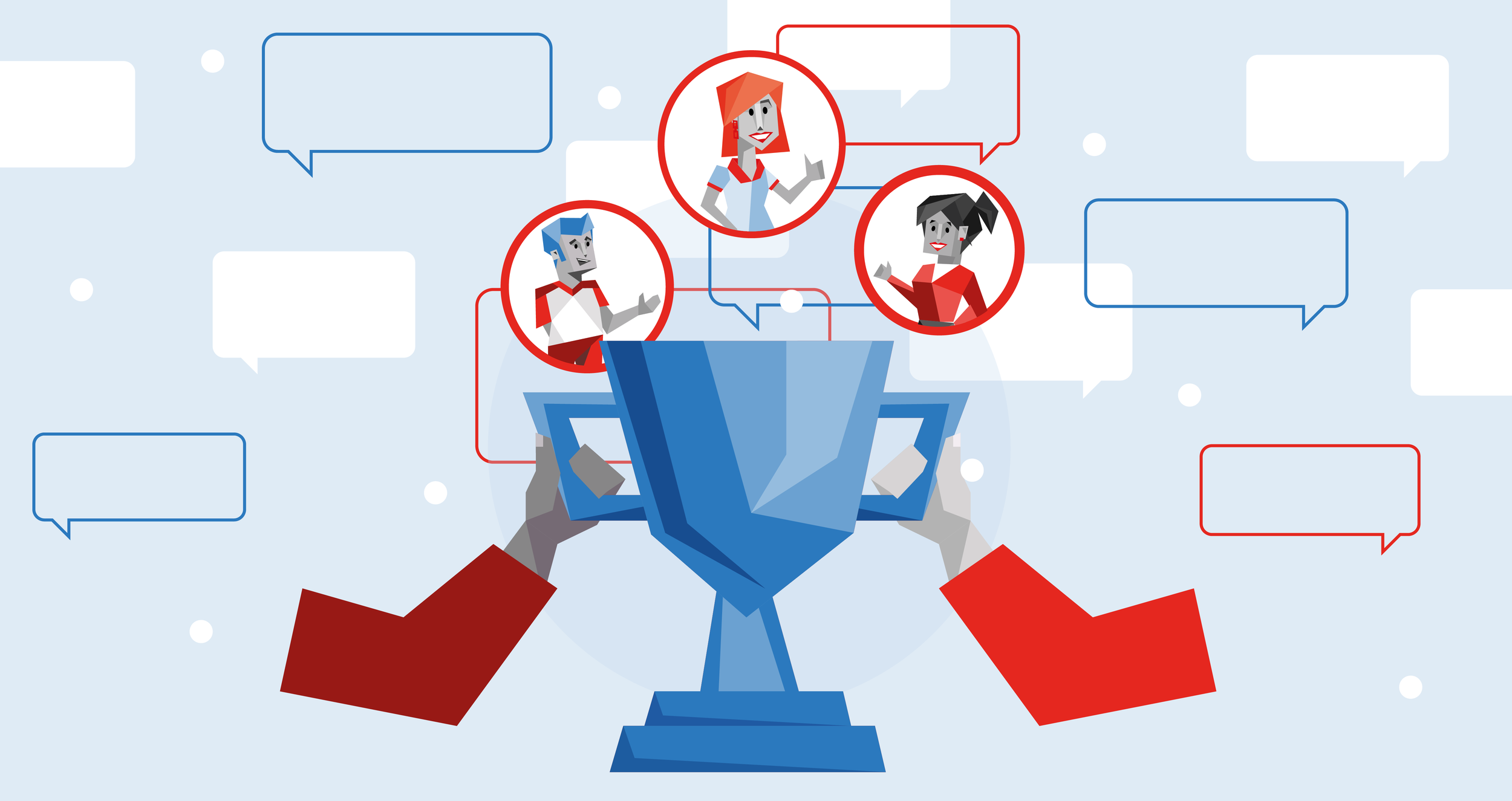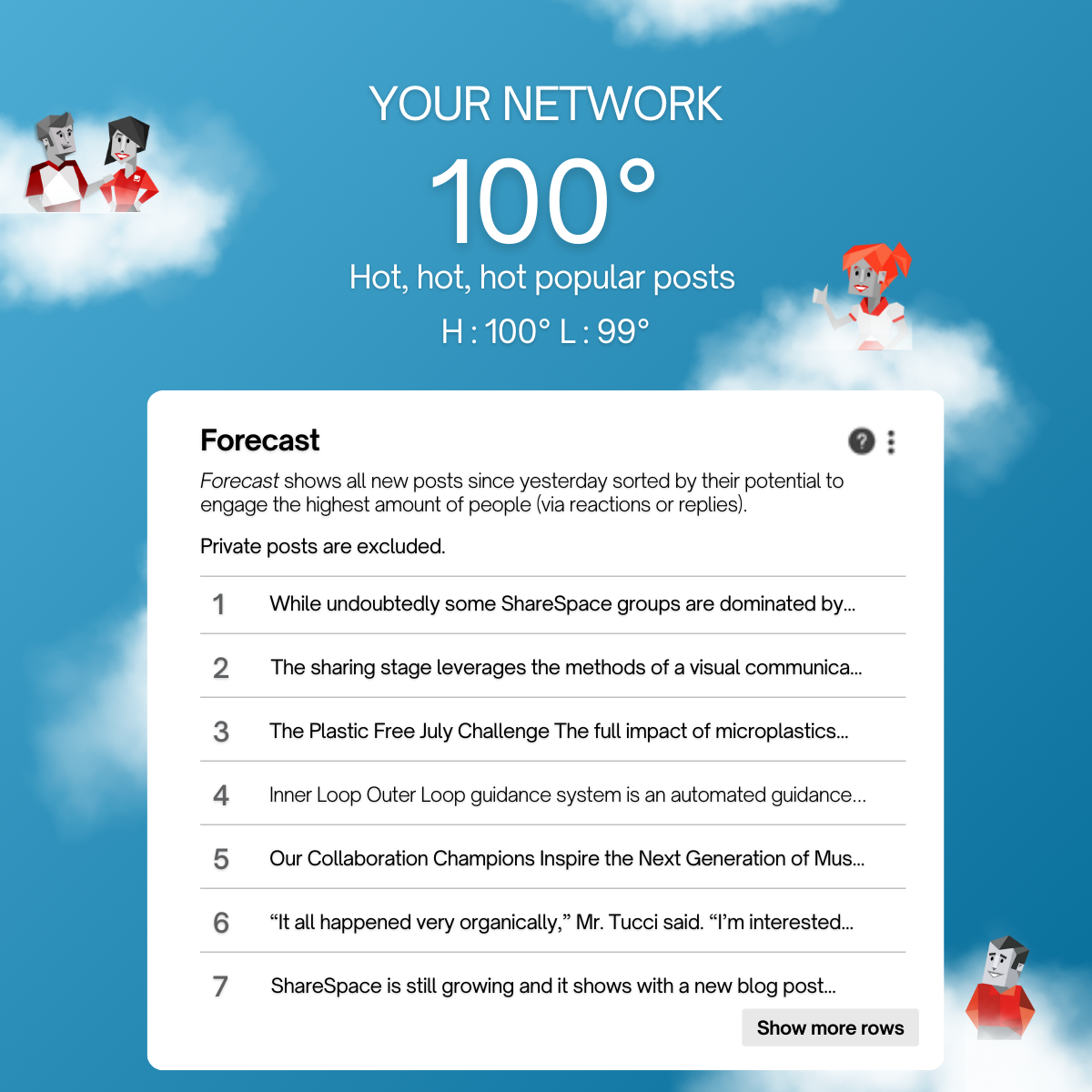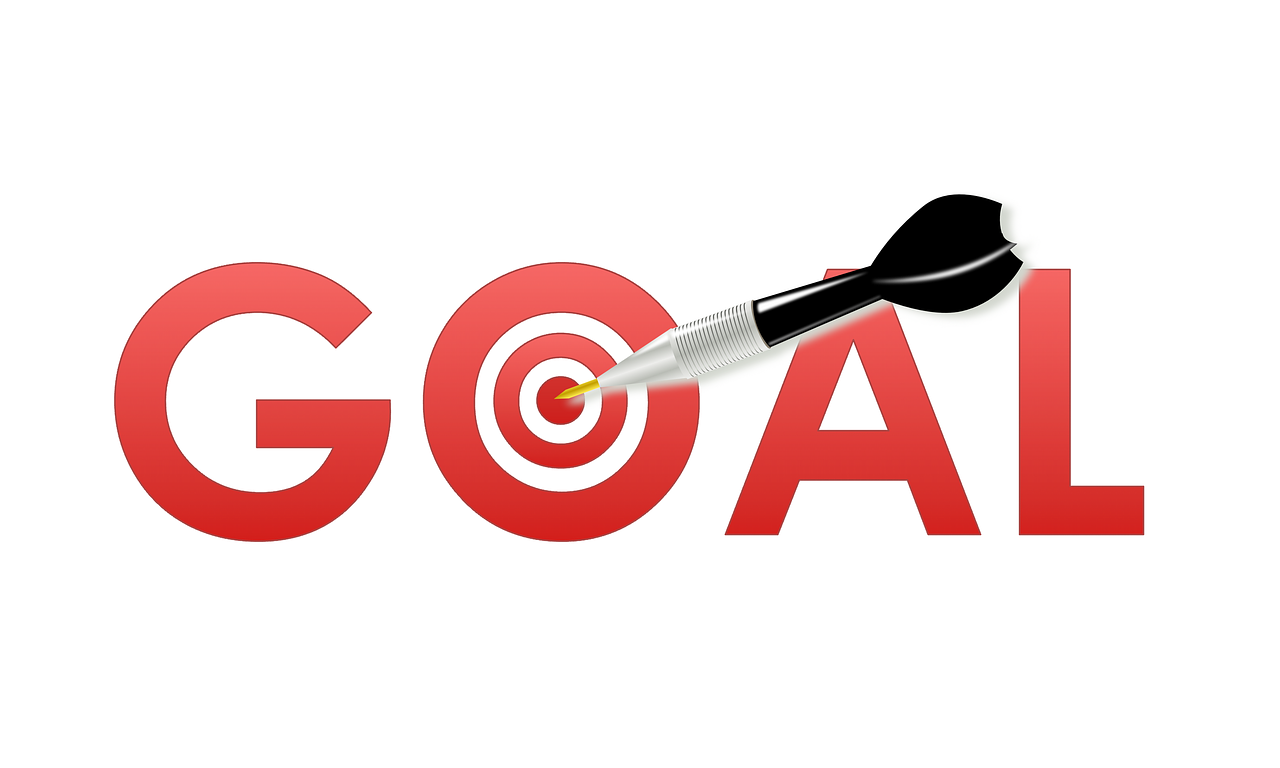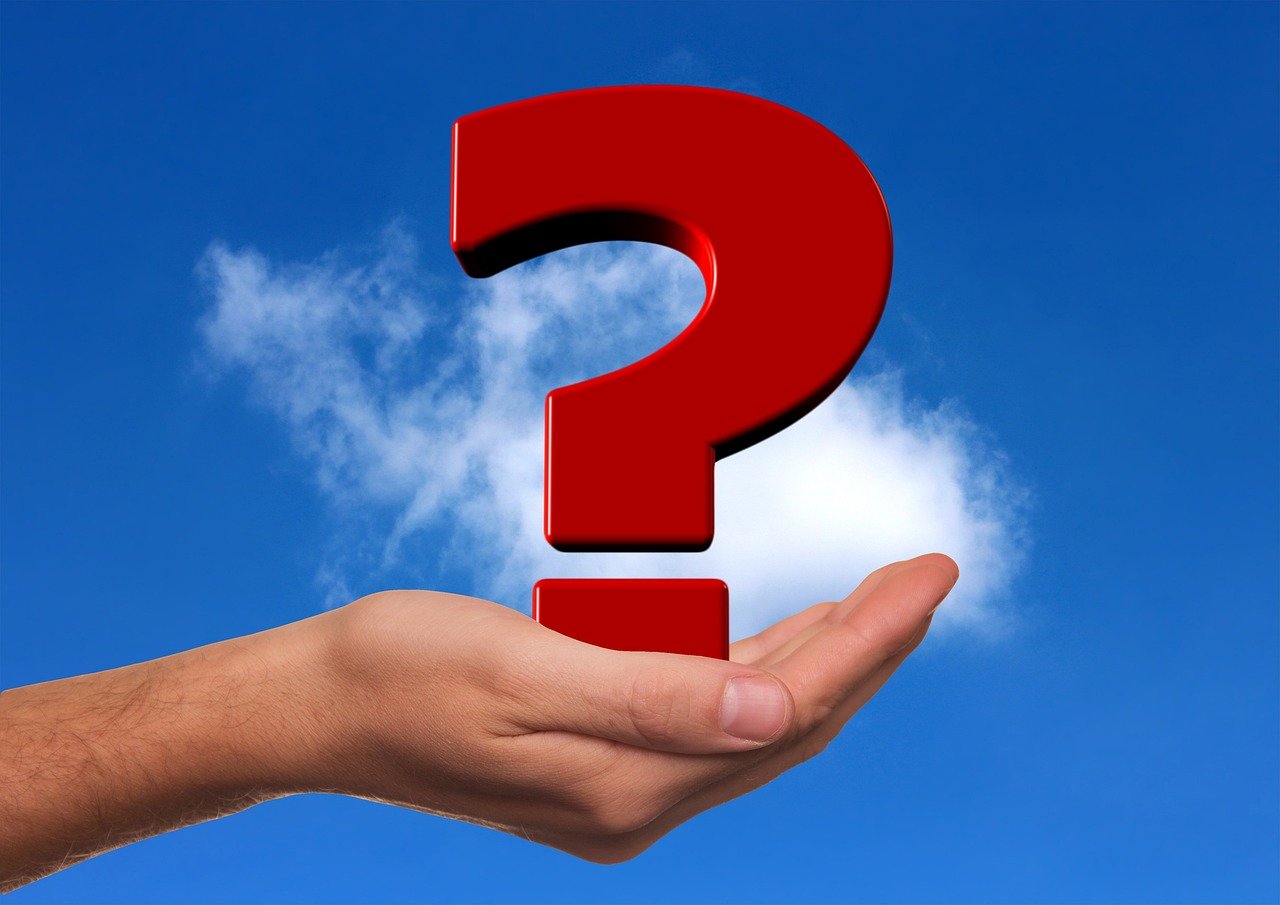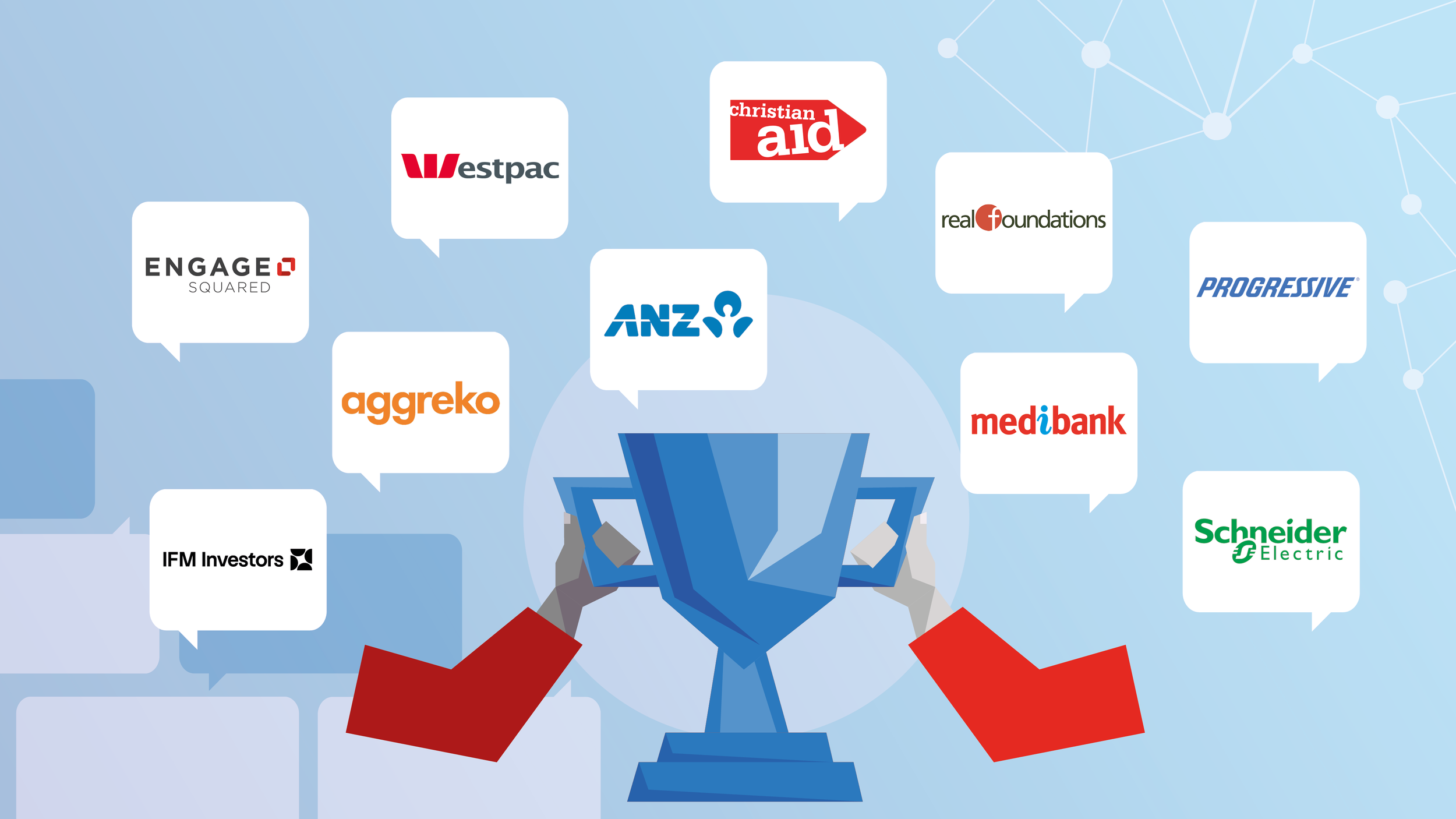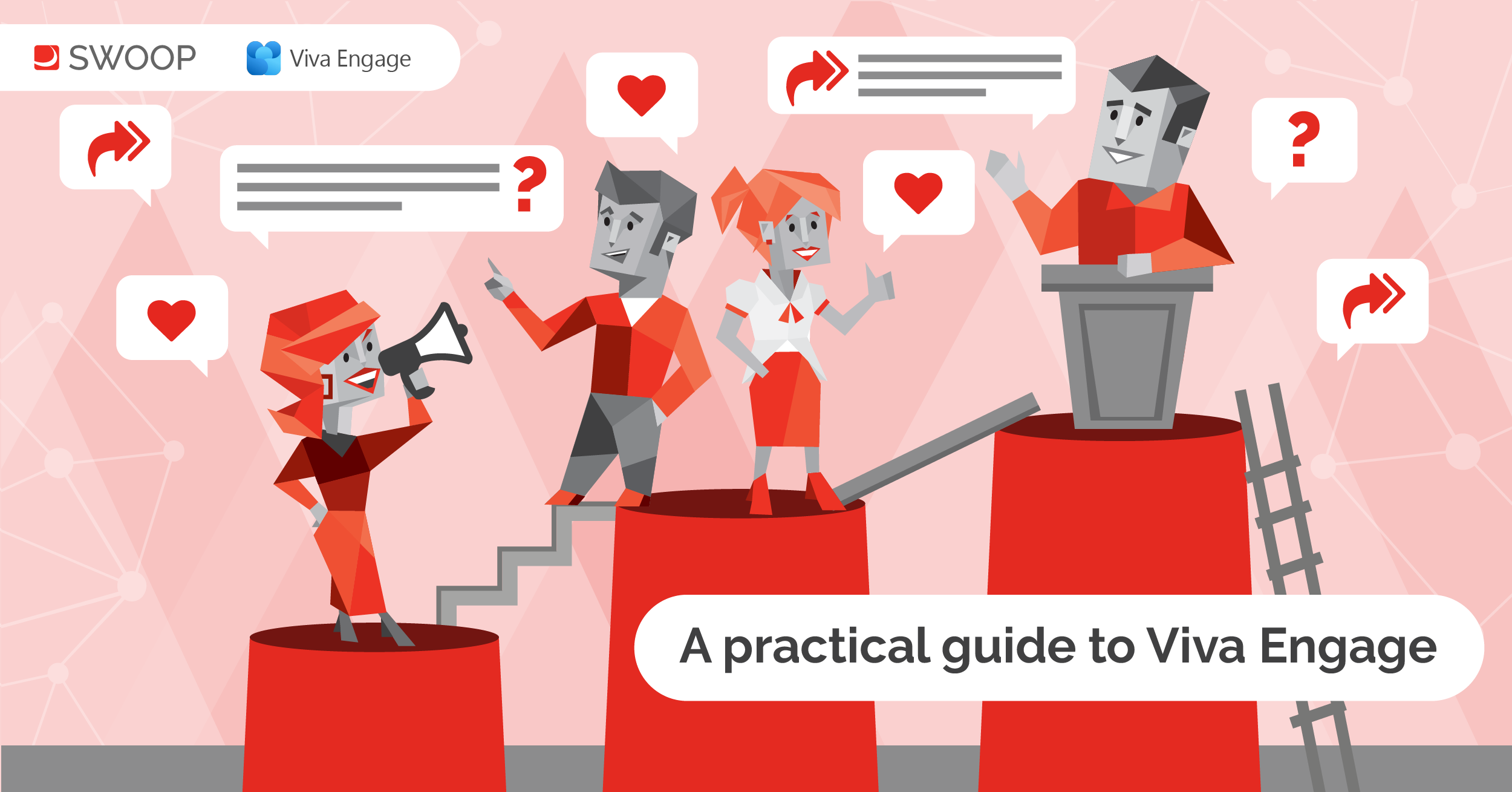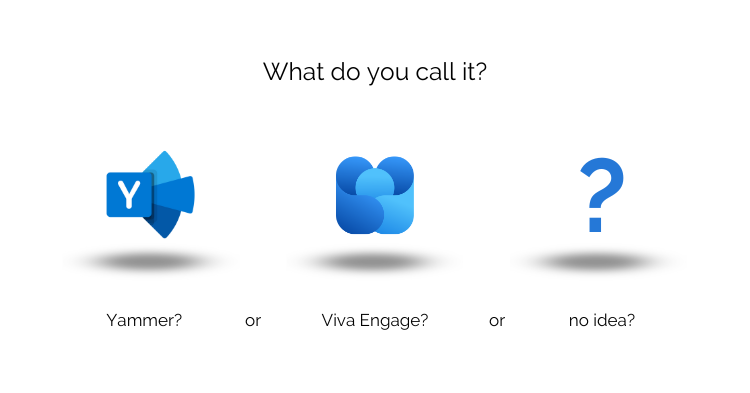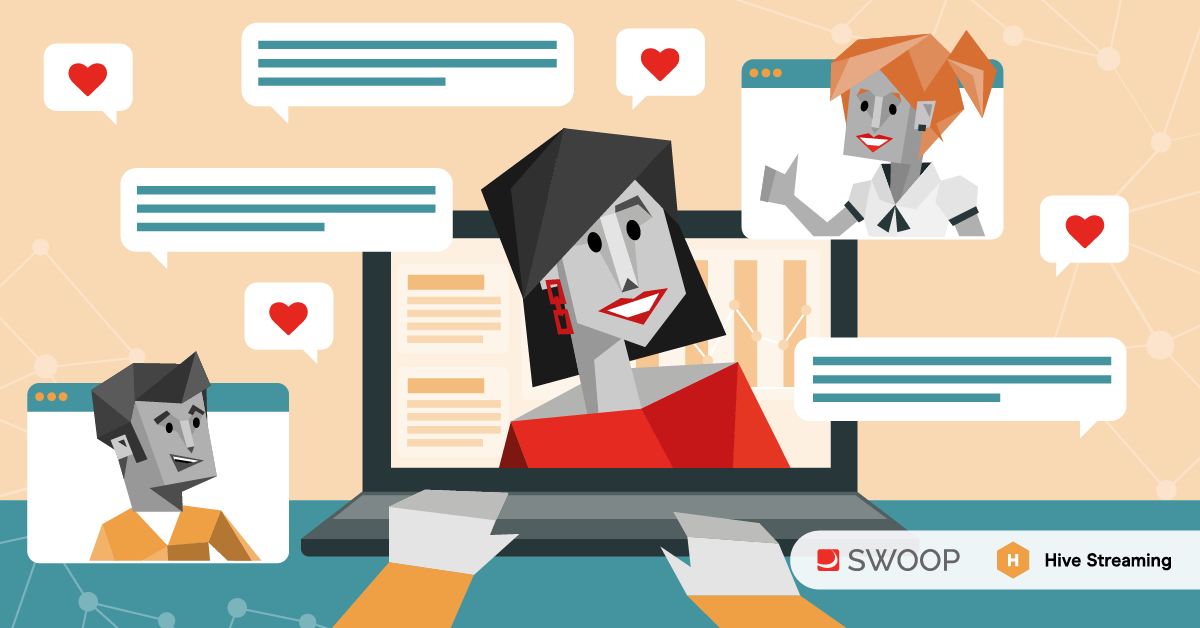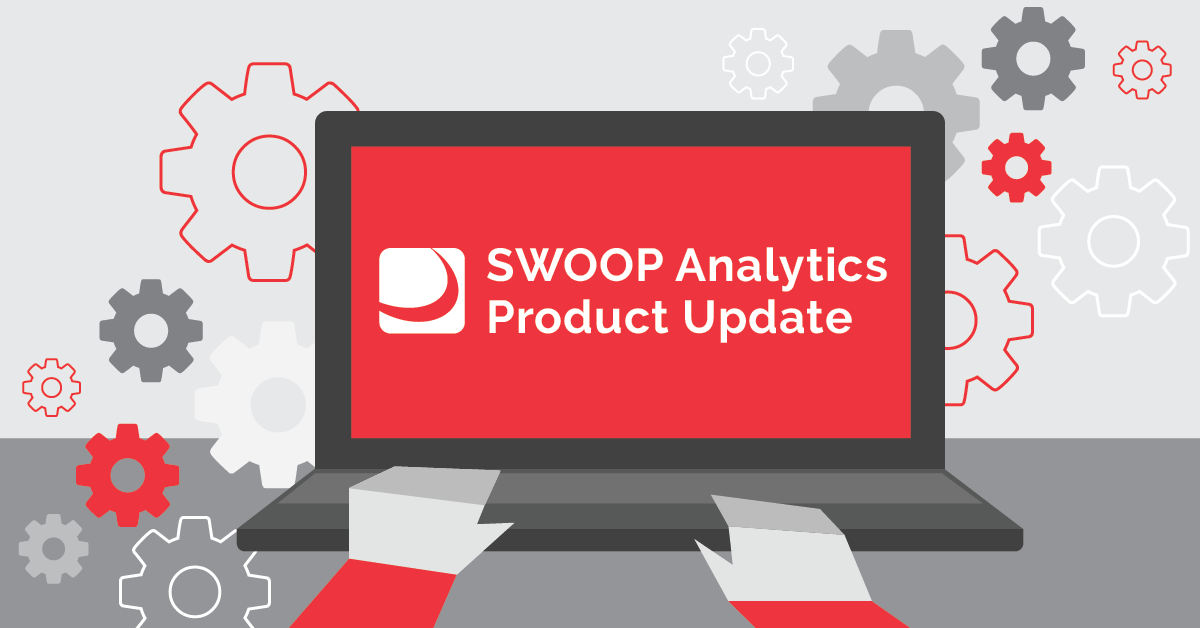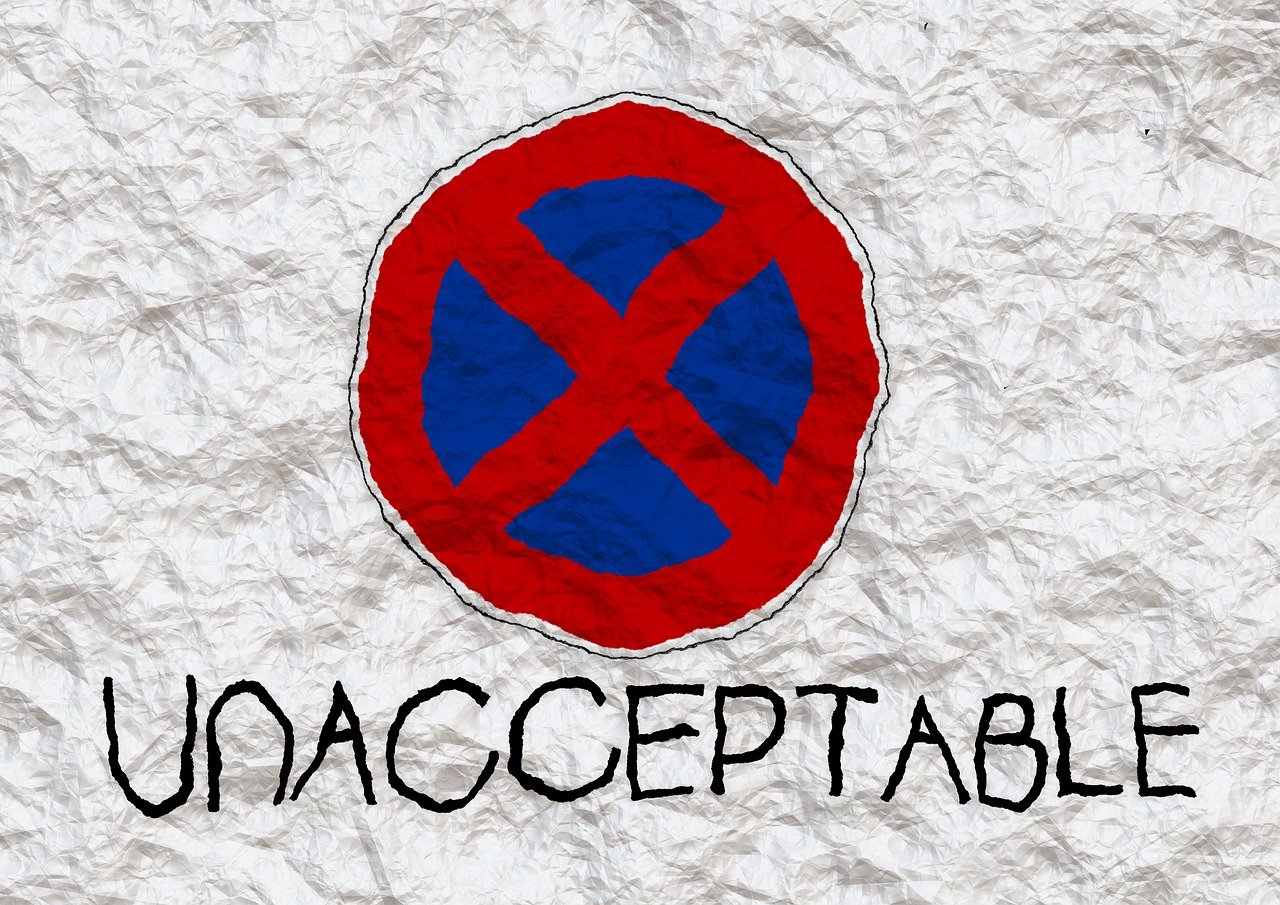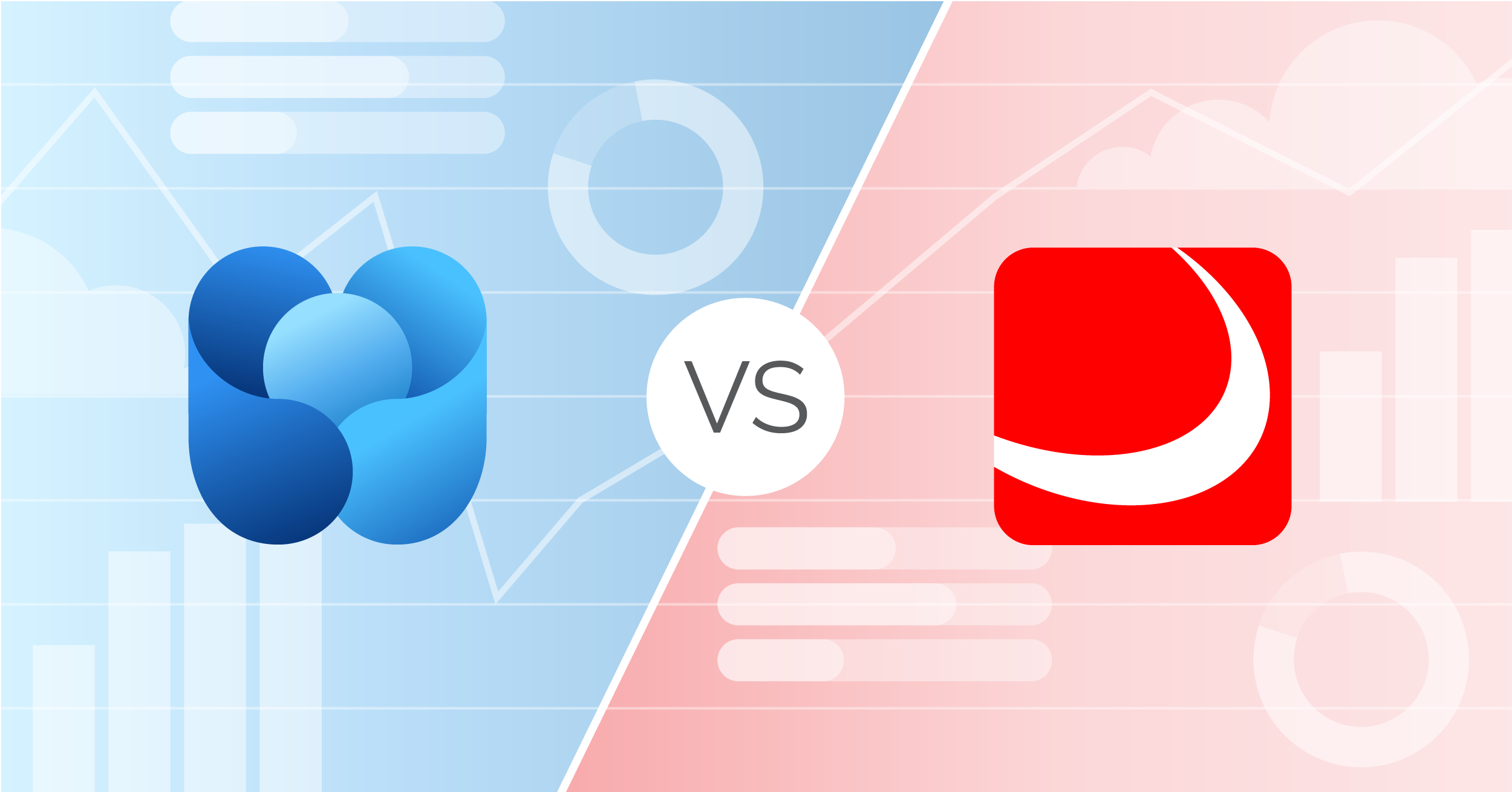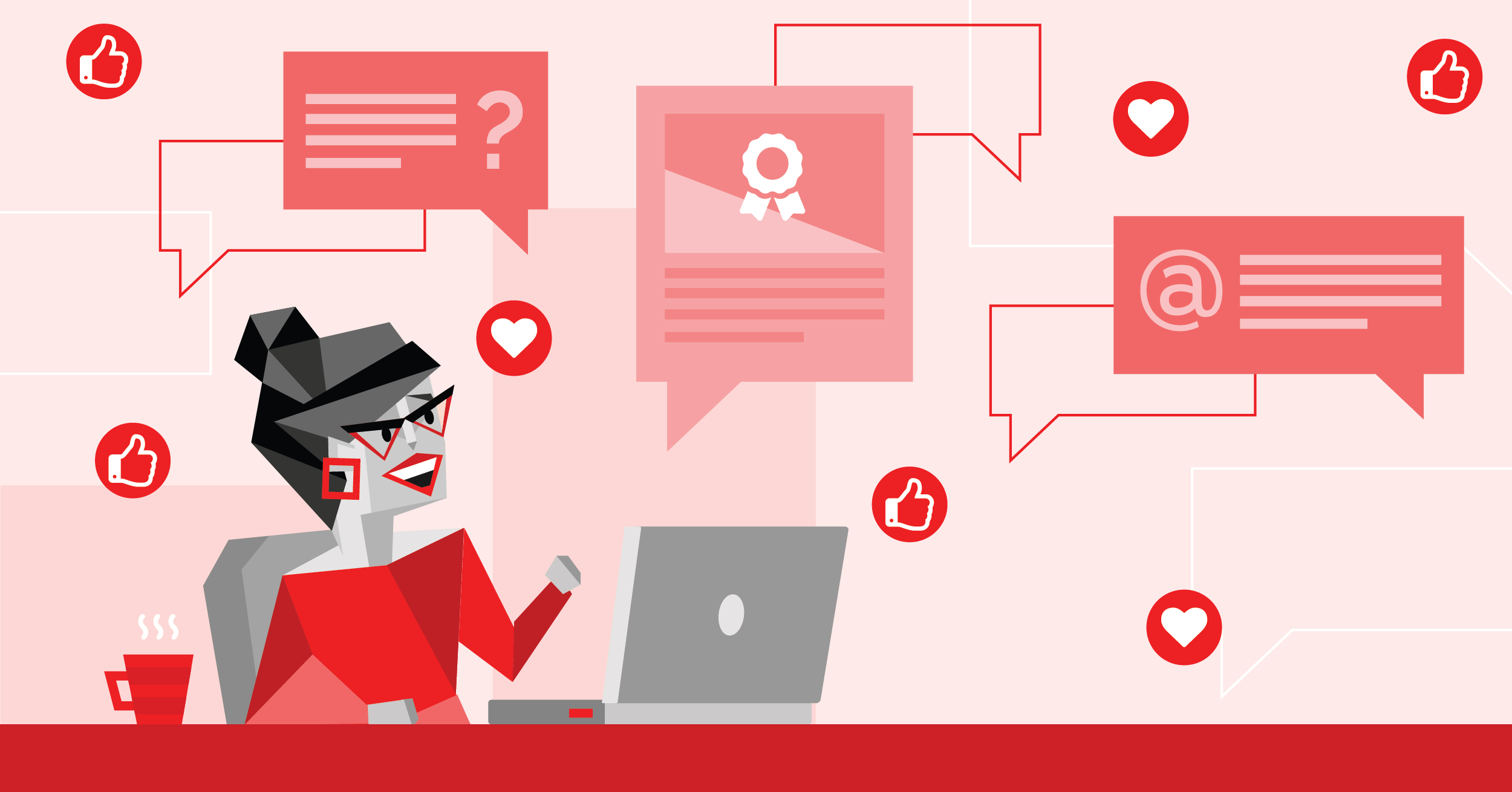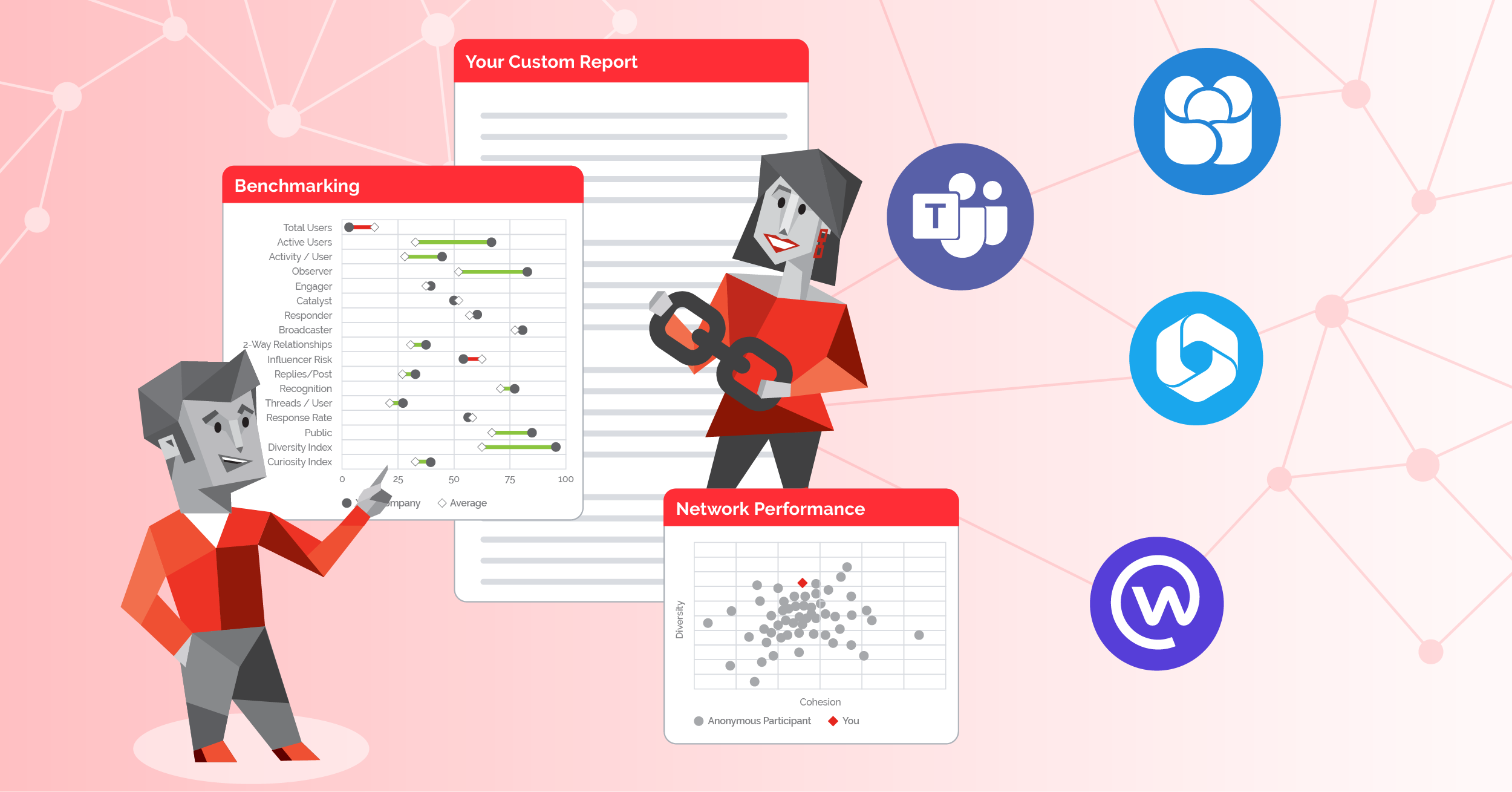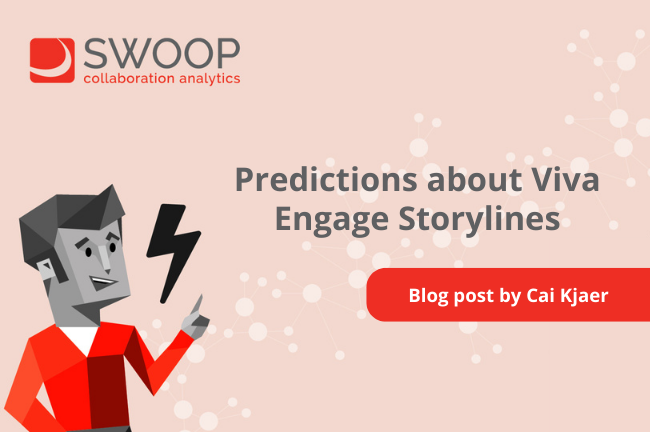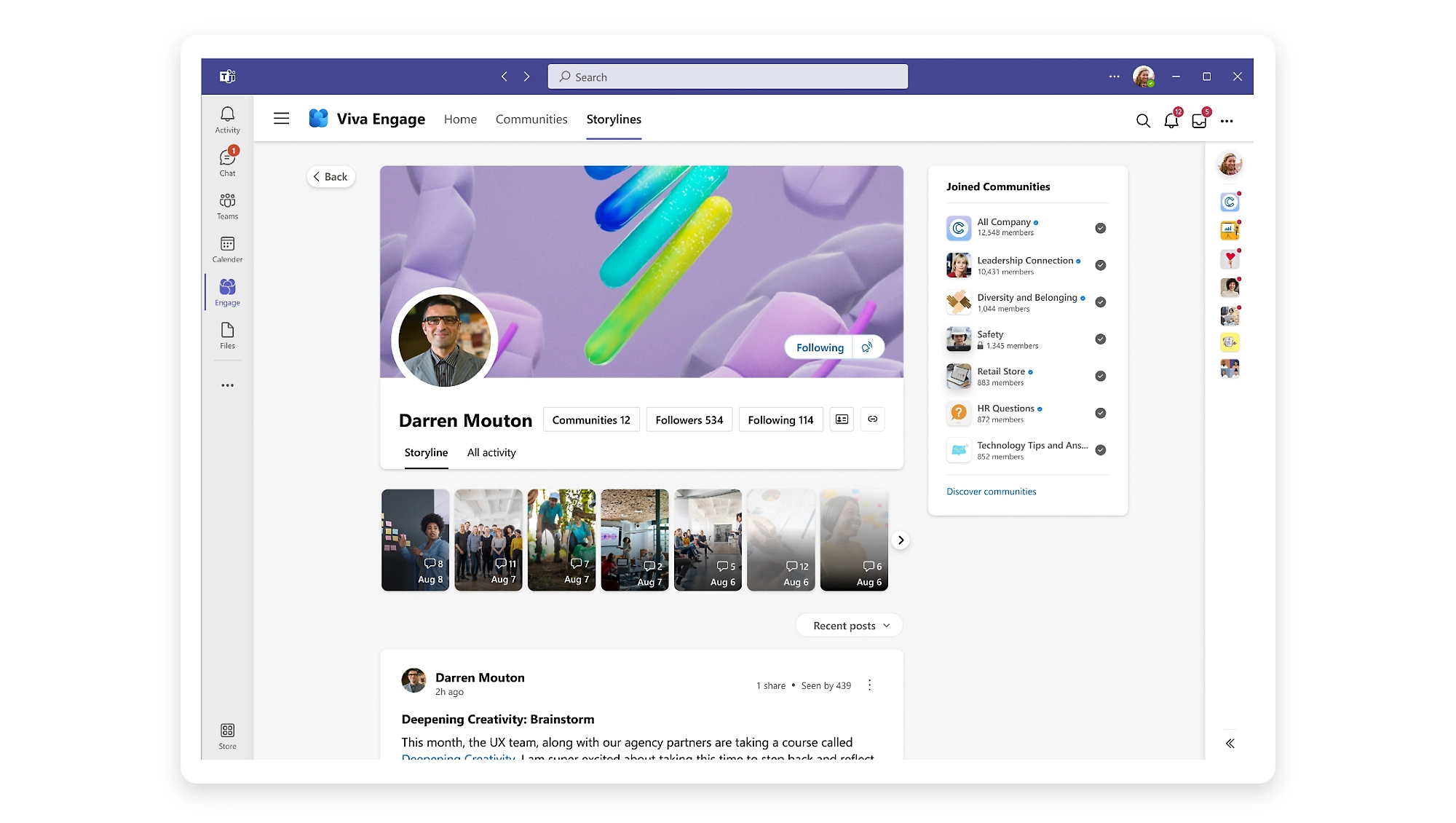Eli Lilly: Who Tells Your Story
AMER | Yammer & Viva Engage Festival 2022
Join Bryce Williams from Eli Lilly who thrills us by opening his presentation with a rendition of "Who Lives, Who Dies, Who Tells Your Story". It's the start of an incredible session from Bryce on how Eli Lilly and Company has enabled Storylines for all employees within their enterprise Yammer network.
-
So next we have Bryce from Eli Lilly, who will be sharing on storylines. And so I did see Bryce there.
Let me tell you what I wish I'd known when I was young and dreamed of glory. You have no control. Who tells your story? Who tells your story? Who tells your story? Who tells your story? So we've heard a lot about Yammer storylines and what it can do for you from a feature standpoint.
But I wanted to go a little bit of a different route this time and talk about what we've observed in terms of real people putting it to use since we've enabled it from private preview. So I'm going to talk a little bit about those use cases and also introduce to you just three concepts about why I think you might want to think about storylines and stories in your organization. One, whether you're an administrator considering whether to turn it on or not.
Or two, whether you're an individual user considering how to make use of it for your own business benefits and personal benefits within your workplace. So let's talk about why telling your story matters in the workplace, how you can tell your story, which I think we've already given a little bit away in terms of Yammer storylines, but then also what types of stories might you tell. Now, obviously, I used the Hamilton reference in the intro to the song.
So why does that matter? And I'll give a little background if you happen to not be familiar with the Hamilton musical storyline. So Hamilton was a common individual, not really, you know, from a prominent family. And he was someone who happened to be a prolific writer and a really strong orator.
And he had these great ideas. And the way that he rose up through the ranks was by being someone who actually got criticized for writing too much and talking too much and being too open with his radical ideas at the time. And in fact, one of his common foes within the musical always told him to just smile and nod and be quiet.
But he continued to write, he continued to share his unique ideas. So when you think about who tells your story in the workplace, is it people that have your best interests idea, that have your best interests in mind for you? And where are those stories coming from? You see, a lot of times you might rely on your story being hidden in your email inbox or hidden in private documents that you've created that only a limited number of people have access to. So how do you make sure that that becomes more visible on a scale that creates a brand for you and your organization, no matter how large or small? What's the right size of that brand that you create for yourself? So people are aware of where your expertise lies, what you have knowledge in, the things that you've accomplished.
Performance review documents are great, but not many people can see those. So this is all about taking a little bit more control over your brand, your story within the workplace, so that when others discover you, you get name recognition. You become prominent in the back of the minds of others when they have ideas about someone they could leverage.
Or if you're looking for new opportunities, they might recognize, oh, I've seen that person do some pretty neat stuff in this other space. I bet they have the aptitude and the creativity to apply that within the specific things that I want them to be able to work on. Plus, you're creating a running history of the things that you've worked on that's more discoverable to others, more findable, and where people can reach out to you through your expertise and, again, create that brand across your organization.
So how can you tell your story? Of course, we've been talking about Yammer storylines, and that's the reason that we're here today. You saw a lot of details about how it works from our previous presenters, so that's great context here. From a background standpoint, at Lilly, we turned Yammer storylines on about a week after it showed up in public preview just so that we could observe how people use it and compare how we're seeing it being used in the workspace compared to how people were using communities, how it might be similar, how it might be different.
Would people be afraid of it? Would they use it actively? And so what's been really cool is we've seen some really cool use cases, so what I wanted to do today is give you some examples of those use cases that we're seeing in the real-life workplace. This is my storyline with me and my three kids and my wife. We were on vacation a few weeks ago, so I decided to make that part of my representation so people know my face, and when they see me, they know that I'm a family person and things along those lines.
So it kind of helps when you're not seeing as many people in the hallways as you used to or you have a large global company that's distributed to kind of give you that picture on top of your desk or picture on top of your locker type example where when people look you up and find you, they can kind of see a little bit more about who you are and what you are. So what types of stories might you tell? So this is where I'm going to start with examples of what I've done and then relate that to other examples of how I'm seeing people use it as well. First is sharing with individuals what you're working on so they're aware of your work and creating more advertisement for the value that it's bringing.
So you can see here me being within the Office 365 collaboration space when we turned on Viva Insights for everyone within our company so that they could see individual productivity data about themselves. We shared that in a community, and then I used my storyline and individual followers that I had to amplify that further for people who may not have seen it occur within that community. So I will say a large percentage of how we're seeing people use storylines is to amplify things that they've posted in other communities, which to me is great.
I mean you get a combination of things that exist in storylines only and things that are still being posted in communities, but I don't have an exact percentage, but my feel is 50 to 60 percent of the storyline posts are an amplification or a further context added to a community post, which is great. It's just kind of bringing more attention to things and drawing people into new places that they might have missed otherwise because of what they may or may not be following actively today. Other examples that where we've seen this play out, so I did one in terms of launching a new application or a new capability and making sure people were aware of that.
The other one we've seen are outages. So in scenarios where we've had large outages across the company, we used, I saw people who were responsible for that technical area share notices from an outage-focused Yammer community to their storylines to amplify the fact that, hey, here's what you need to know, here's how you can work around the outage, here are the things that it impacts that it doesn't, and where can you go to ask questions and get clarification about how it's being resolved and who's paying attention to it. So again, kind of that amplification of what I'm working on and what I'm responsible for.
The other place that I've seen people use it is kind of in a recruitment type of sense. So people that are responsible for bringing in employees for surveys or signing up for learning opportunities or to be part of a focus group to help someone bring in user experience data or even customer data focused on employees as the examples to inform some of our product decisions, advertising the fact that those opportunities exist to drive signup or volunteers to participate within those programs. The other one I've seen, so we're, particularly within our IT organization, we're doing a lot of work to transform into a more agile organization using agile methodologies.
So I had one product owner actually use their storyline to create a video and share an example of how they incorporated agile methodologies into their daily project management tasks to then help and share that with their colleagues who are also going through that same exercise. I've also seen it for, we as little employees every once in a while, we'll get ticket opportunities for local musicals like Hamilton or Pacers or Colts, and so I've seen people share to their storyline for, hey, here, click here, go get some tickets, sign up here, and you can get some of those free tickets if you sign up in time. Then one of my favorite that I really like, and you get this opportunity and this value in communities as well as storyline, but I've seen it play out in storyline, which is the auto-translation features that Yammer provides.
So again, being a large global organization with people in many different countries, we also speak a lot of different languages, and so it's allowing connections across cultures for individuals who share posts about themselves, but even if it's in a language that I can't read, I can use that translation button. I can connect and learn about what that individual is talking about to allow me to then respond, and we can have a dialogue back and forth in two different languages and create that community culture on a broad sense, and so I've seen a little bit more of that occur since we've launched storylines as well. So that's a focus on work activities and how storyline is continuing to amplify and accentuate what we already have with communities as a result of it being available to our employees.
The next type of story is what's on your mind? Not what exactly what are you working on, but what are you thinking about? Are you a thought leader, and are there things that you're you have on your mind that aren't necessarily being worked on but could shape future work or trigger ideas for others to influence the work that they're doing? So my example here in my screenshot is actually when we rolled out Viva Engage in addition to Yammer to talk to people about how they might think about the coexistence of those two concepts, clarify the meaning of the naming, and my ideas of how people might take advantage of it differently than what we just had with Yammer. So it was kind of me pontificating, if you will, about how people might want to think about the role that Yammer could play, I'm sorry, that Viva Engage could play along with Yammer. So how are some other people doing this in terms of sharing their thoughts? Probably the most powerful example that I've seen, I saw an individual write on their storyline a testimony shared to them from a friend.
It was actually a transgender individual that works at Lilly that had had a little bit of a painful experience with an unintentional microaggression, but they didn't want to share that as themselves. So they asked an ally of theirs to share that on their behalf so that other people in the company might have a greater awareness about the things that they do and how they might just want to make sure that they're more conscious in certain scenarios to not have that kind of negative impact on an individual. And that post was well-written, it was powerful, it got a lot of views, it got shares into other communities, and to me it was a nice powerful example of using a personal space to create awareness about a very personal and powerful subject.
We have an IT architect in our organization too who's used it very regularly, in fact almost daily from what I can see, whereas he's researching what's going on in the external technology industry. He comes in and he shares links to stories that he's reading, provides some of his own insight about where it could apply, asks questions about how other people are seeing value in that. In fact, I engaged with him this morning because he shared a story about something new called ChatGPT that I had seen some activity about on Twitter as an AI generation chat tool, and I shared a story with him about how I used it to try and find some lacrosse colleges for my son that we might be interested in and build a table of those.
And so we can, I had a little bit of back and forth on his story about how I used it and how he was experimenting with it. Another example that I saw is we had a large all-company meeting not too long ago, and I saw someone actually take, they shared to their storyline a post with the rebroadcast of that meeting, and then they added to it their own takeaways. What they took away from the meeting, how it impacted them at an org level, and kind of added this asynchronous conversation piece to what had been shared in the meeting by that leader to keep the conversation alive.
And then finally, I've also seen people use it to create more awareness about important employee programs that someone might have missed through normal communication means. One example being we have what are called employee assistance programs that can help people make their personal life easier or overcome various difficulties that could come in your personal life through work-provided resources. But sometimes people don't think of those or don't know that those are available.
So I've seen individuals share, hey, if you need this employee assistance program for XYZ situation, here's where to reach out, here's where to find that. And so I've been really proud to see people kind of share those things to help their community of individuals across the whole company by just putting that out there, making it searchable, making it findable, or hitting eyeballs in that moment. So moving on, and this sometimes is a little bit of a tricky conversation depending on the culture of your organization or how people might be willing in their own company to share a little bit more of who they are, but a storyline of you.
Not just what you're working on, but like who are you? Again, we've done this a lot historically in our teams by meeting in the hallways or having lunch together or the conversation we have before and after meetings as we transition from one work activity to the next. But taking that to a larger scale within a large organization, how do people become aware of who you are? So you're not just checking your personality at the door, but you're someone that people can relate to. You're a face and a name that people recognize when they come across you in the workplace.
So those barriers have been broken down by the time it comes to get the real work done. So there are opportunities through stories and storylines to create a little bit more of a persona about who you are and what makes you tick. And so one of the really cool examples we've seen here, it was around Thanksgiving.
Our well-being organization started a thread of with during the month of November, 30 days of gratitude with a prompt per day for tell us what you're thankful for in terms of a life lesson you've had in the past or what freedom are you thankful for or what person from your family are you thankful for. And so it prompted people to do that on a daily basis. And so one of the things that I personally did is I took each of my answers to each day and I shared it to my storylines so that my followers could see what made me tick.
In fact, this specific example in this screenshot that I shared is actually a life lesson from me when I was a teenager when I did something that I wasn't proud of, but now it made me like almost too honest to the fact that it drives my wife crazy because I won't park anywhere where I'm not supposed to or I'll never like enter in the wrong place to where I'm almost honest to a fault and I'll never like break any rule ever because of that one life lesson. But I shared that story because it is a life lesson that has shaped me to be a better person and I'm coming from a moment that wasn't great. So how have I seen other people use that in terms on top of the 30 days of gratitude? We have a ton of diversity, equity, inclusion events at Lilly, communities that have their own Yammer communities, events that are scheduled around celebrations and holidays, just general culture sharing and awareness opportunities to learn about what's happening across individuals that are parts of these communities.
So we're seeing storyline used again as an amplification to make sure you attend this event. Here are pictures from this event that we had. We just had this celebration.
Here's pictures of, you know, we have a lot of individuals from India on our team and around one of the recent holidays they did a buffet to try some of the different styles of food and they shared a lot of pictures of the different types of clothing that they were wearing during that celebration for the holiday. So that was a really cool example to see that play out in storylines. As well as well-being initiatives.
So we had a virtual 5k across the company not too long ago where people could go either run or walk their own 5k or do some type of exercise and then share a picture of themselves and their storyline having completed that 5k. Of course I cheated and I was playing a round of golf and I walked instead of riding in the golf cart and in the conclusion of my round of golf I had a sign that said I just finished the 5k. It just so happened I stopped and hit a golf ball every once in a while in between it.
But I did reach the 5k number of steps during that round of golf. The other interesting one that I saw just play out is someone said hey they posted on their storyline I like to play pickleball. Does anyone else in the company also like to play pickleball? And before the end of it we have now a pickleball community that's starting up a pickleball league that people are starting to get together and create a competitive Lilly pickleball league all through Yammer storyline and then transitioning into a new community.
I saw the one the other day where someone posted on their storyline today is my first day at Lilly and I could not be more excited to be here and part of this team. So those are just some of the examples we've seen in the last few weeks since we've turned storyline on. So again my purpose is to compel whether you're an individual or someone who's in charge of making this available for your organization what the value proposition behind it could be from a lot of different angles but particularly for you as an individual if you're not taking advantage of something like this that's putting your story out there in the open are you telling your story or someone else.
So leverage storylines think about what it can do with stories think about ways to tell your story of your work the things that you're thinking about and who you are and don't throw away your shot within the workplace. Thank you all right I am I can take questions now. Excellent for anyone who has questions for me.
Thank you Bryce for for this wonderful presentation this beautiful the voice moment for us. I think my I turned my chair around for you and and so we do have questions in the chat here and so one is do you did you do any communication outreach to prepare employees for the introduction of storyline? Across the entire employee base no. So we used our existing communities for either people that all of our Yammer community we have some existing communities that are more broad than just Yammer about engaging in a digital workplace.
We also have a couple of other collaboration related communities that come from an education standpoint. So we use those that fit the topic of people that we knew were kind of power users to get the initial thought out there and then as those individuals started setting examples and using it and it started showing up in other people's feeds and then their email digest and that kind of created the snowball effect of oh I could use that. But we did have I did a storyline post with a story myself to introduce it and I created some intro examples within those respective communities but then people could share thinking about using Yammer storyline here's how you can make use of it and how it can work for you.
Excellent thank you and then regarding amplifying are they doing a straight share from community to storyline or are you seeing they are giving any additional context that wasn't shared with the community? More often than not there's a little bit of additional context added. I think a lot of times you'll see it's more of a hey if you missed this here's how it might apply to those that I'm sharing it with with a slightly additional context. Every once in a while you'll see one that's oh check this out.
I think maybe the what could be leading that question would be are you creating a scenario where you're potentially splitting the conversation so someone shared something in a community and would the additional conversation be more valuable by staying in one place instead of being split into multiple places and I could see that sometimes that concerns me a little bit. I can't say that I've seen a lot of that. I for one did get a question on one of my storylines that I answered there and then very quickly realized you know what this is now missing from that other thread that is in the community that's more relevant to this topic.
So I just took it and linked to it and actually I for that one I actually copied the text and said FYI from my storyline I answered this question here's the text to keep it all in context. So I took that initiative myself. That's probably an art to the science that people might learn over time about how to bring those things together but we're seeing a little bit of that in both regards.
Yeah bringing in a little bit of that community manager layer into it. And then another question is have you noticed any particular patterns about how storyline posts are different to those posted in communities? Is there a different tone or a different topic? I think that depends on the community. I would say a lot of the stuff we see in our communities are either usually initiated from a community manager where they're kind of making an announcement or informing someone about what they need to know or there's a high percentage of questions that are then getting answered like hey I'm trying to solve XYZ problem here are the answers.
So a large percentage of our community interactions are of that either inform or ask style where I do feel in the storyline particularly the ones that are more like a unique post as opposed to a share of something else are more of this I'm telling a story about something. I'm telling a story about the work that I do. I'm telling a story about something I found that I think is interesting or I'm telling a story about myself or my experiences and my career advice that I have.
So I definitely as people are getting more comfortable and you're seeing it used in that way I'm starting to see a little bit more of that differentiation in the style for sure. Excellent and then have there been any negative experiences by turning it on turning storylines on? No I do not have any examples of negative experiences that I'm aware of. I will say we I mean we are a company that's had online network capabilities since 2010 or 11.
So we are a culture that is used to having this and the appropriate ways to use it. I won't say we've never had issues but those were a longer time ago. Now some some things still happen you know Indiana but we I live here in Indianapolis Indiana and there's been a few legislation legislative related things that have been of tense tense conversations lately if you will and those played out in communities.
I've not seen anything like that play out. And I think you touched a little bit on this previously but there's a question of if employees are posting well-being initiatives and there's on their storyline what's happening in the well-being community? So if you can just touch based on that just a little more. Yeah I wouldn't say it's it's always one way or the other.
I would say you see reaction and Q&A and clarification and picture sharing within the well-being community but then you also see that being amplified to people's followers and drawing in more people who aren't following that well-being community to one potentially create more well-being awareness for people who might not have known that that community existed and creating more of a connection like a personal connection with their direct followers for their specific contribution. I will say so for example one of the things that we run is an educational driven community we call it Elevate and we use it to publish videos and examples of how to effectively use our collaboration tools in the workplace and as we've started sharing our posts from the Elevate community that are advertising our content to each of our individual storylines we've seen the membership of that Elevate community go up a little bit too because we're drawing in eyes that didn't know it exists or weren't proactively following it and I will say I think when someone is following me and I post I think the notifications of my new post at least to the default settings seem to be a little bit noisier than the default settings for I joined a community unless I've specifically made some follower choices on that community or unless someone posted as an announcement. I think the like when I follow someone particularly if I have Viva Engage installed in Teams you know I get notifications in my activity bar that they posted something so community storyline posts by an individual almost seem to have a roughly equivalent noise creation as do announcements within communities as it just opposed to regular posts or at least something close.





